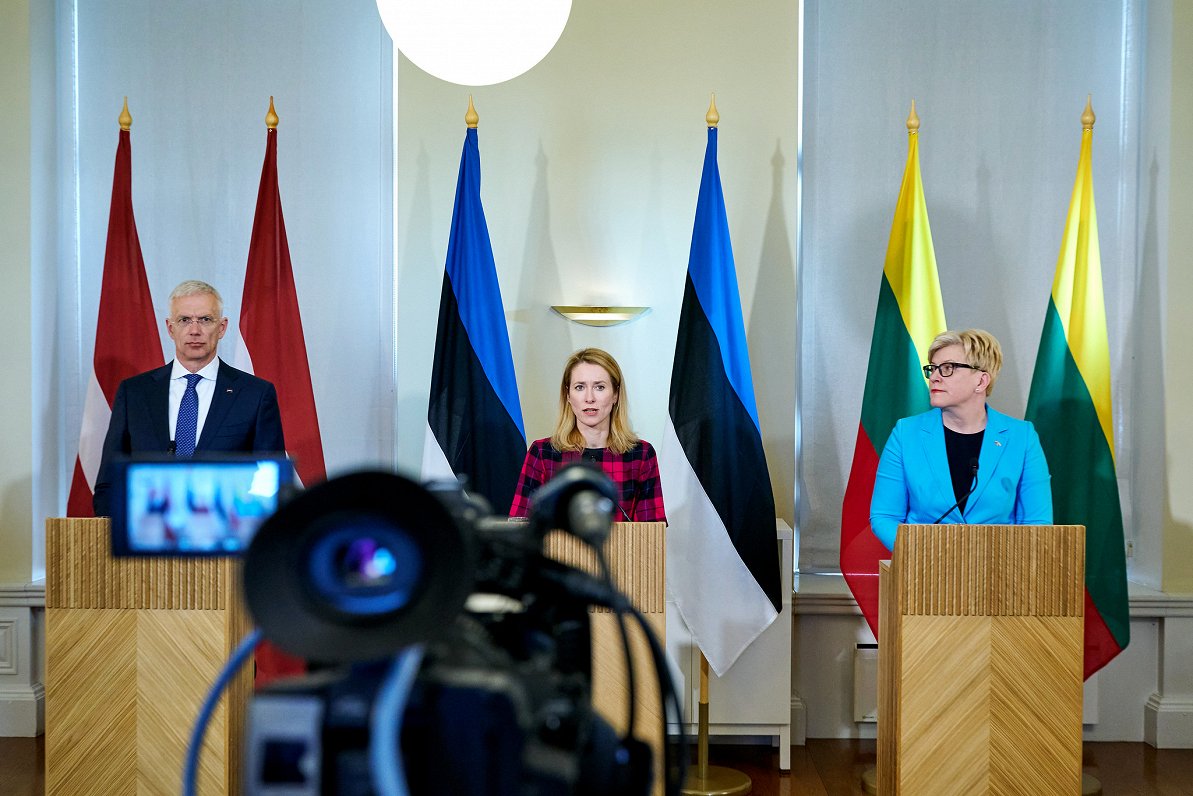In a social media post, Kariņš displayed the text of a joint declaration [full text attached below] signed by the Prime Ministers of Latvia, Estonia and Lithuania in which February 2025 is the stated date for what is technically known as "desynchronization".
The Baltic States have agreed to speed up the desynchronization from the #BRELL system setting new date – February 2025. It is another step in our joint efforts to reach full independence from #Russia and make our energy system more resilient. 🇱🇻🇱🇹🇪🇪 pic.twitter.com/wCdt41z86B
— Krišjānis Kariņš (@krisjaniskarins) August 3, 2023
As previously reported by LSM, Lithuania has been leading the way in attempts to increase the Baltics' energy independence from aggressor states Russia and Belarus which were planned even before the invasion of Ukraine but which have been accelerated in the wake of Russia's aggression. Previously it had been planned to cut synchronization with the BRELL system (also referred to as IPS/UPS) at the end of 2025.
Profesora Džordža Deivida Švāba memuāru grāmatas atvēršana. Prezentācija (.pdf, 22 MB)
Download490.07 KB
"[The] Baltic States’ disconnection from IPS/UPS and achieving energy independence from Russia is a fundamental goal tied to our security and continuous economic development. The Baltic States’ electricity system synchronization with the Continental European Network is a top priority of the current Baltic States’ common energy policy. Moreover, the synchronization of the Baltic States with the Continental European Network holds strategic importance not only for us but for the entire European Union," begins the joint declaration.
"The shifted geopolitical situation, resulting from the unprovoked invasion of Ukraine by the Russian Federation, has also significantly deteriorated the energy security situation in the region and increased the risks of unplanned de-synchronization of the Baltic States’ electricity systems from IPS/UPS. These circumstances clearly indicate the need to accelerate all necessary arrangements for earlier synchronization with Continental European Network," it continues.
Now the deadline is "not later than February 2025", so there is scope for the cut-off to take place even earlier if it proves technically feasible.
The agreed text also stresses the importance of the "Harmony Link" project [an underwater electricity connection from Lithuania to Poland backed by the EU] which is deemed "important for the security of supply and stable operation, as well as integration of the electricity market after the synchronization of the Baltic States with the Continental Europe Network, which must be finalized no later than February 2025 and should be completed without unnecessary delays."
"There is an urgent need to address the financial shortfall so that comparable co-financing intensity is maintained throughout all Synchronization projects. We stress that it is of utmost importance for the Baltic States to act together in the synchronization project. We must remember that we share a common adversary beyond the eastern border, and maintaining Baltic unity in the current geopolitical situation is particularly crucial," the declaration concludes.
Even without desynchronization it is worth noting that the Baltic states do not currently buy or sell electricity with Russia any more, even though the physical connection remains. Contrary to some international coverage, the Baltic states are not reliant upon Russia for electricity.






























